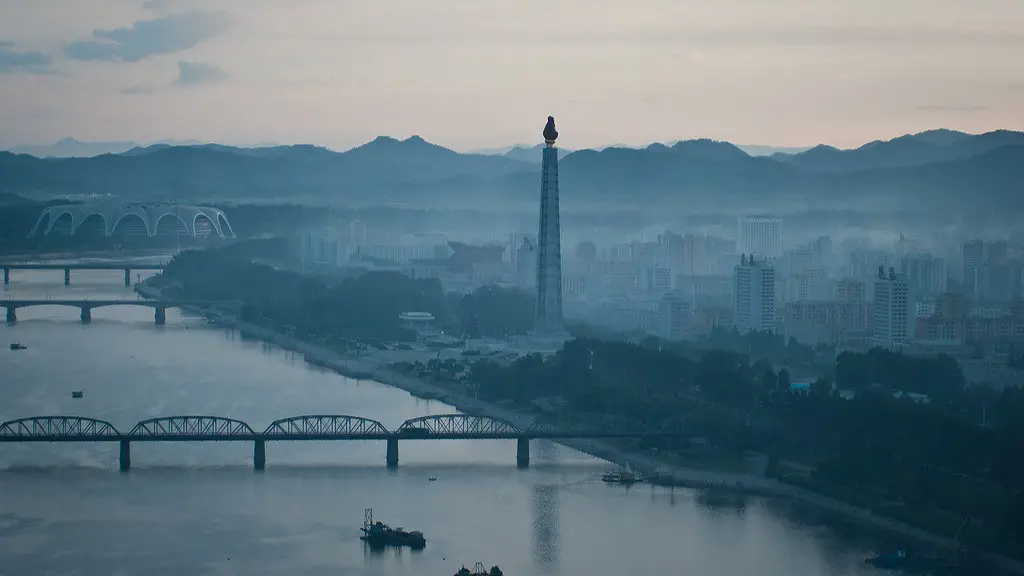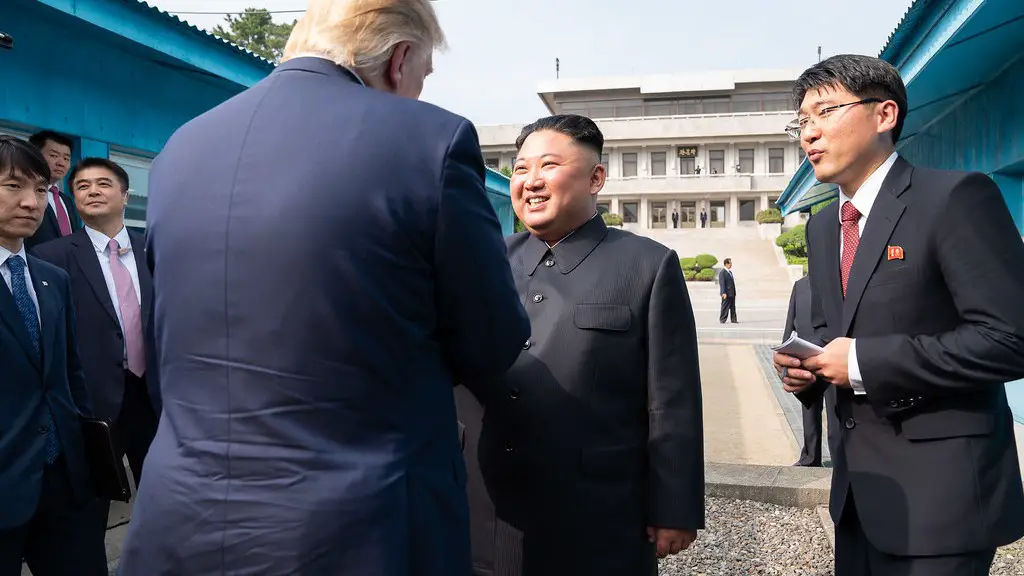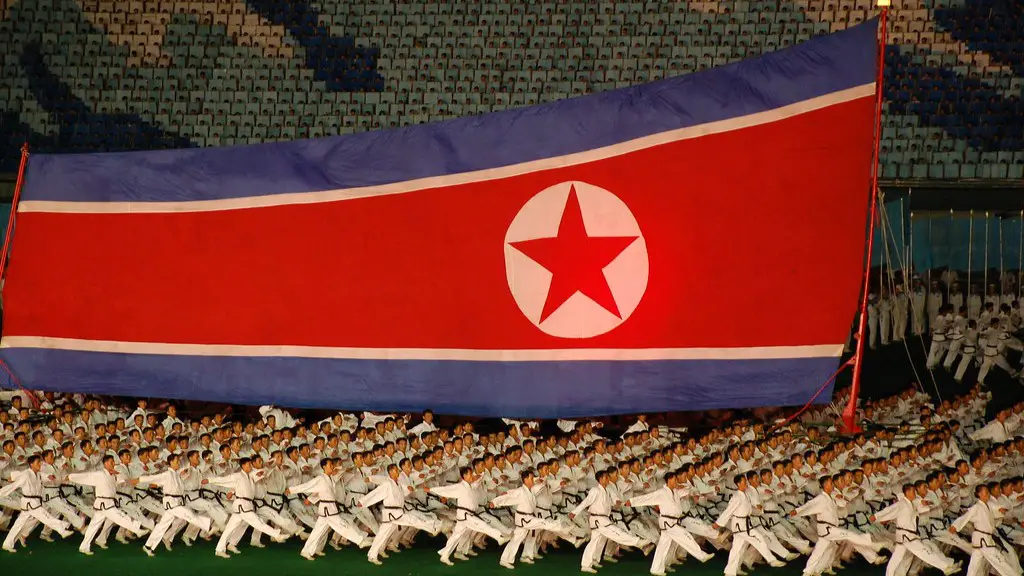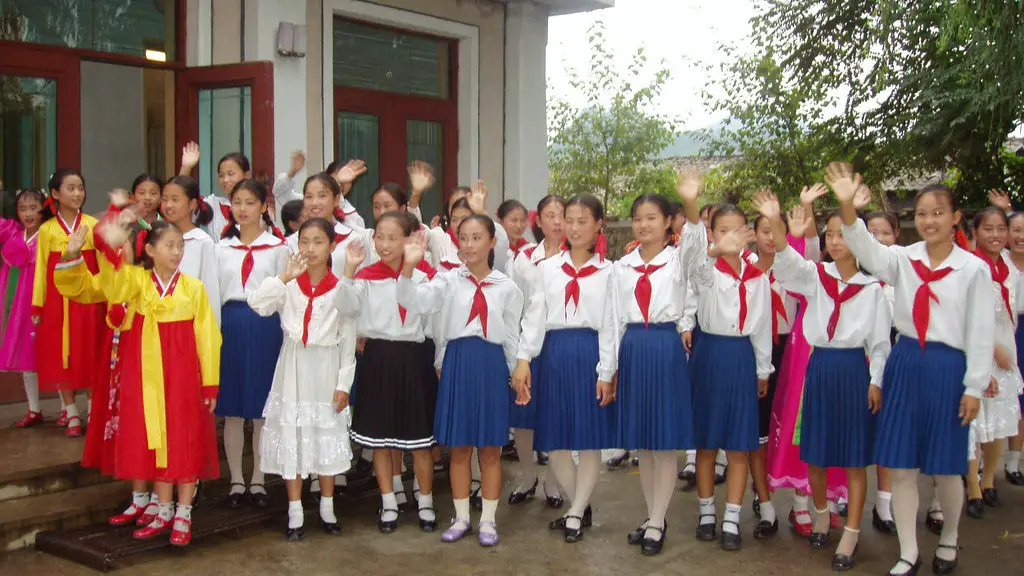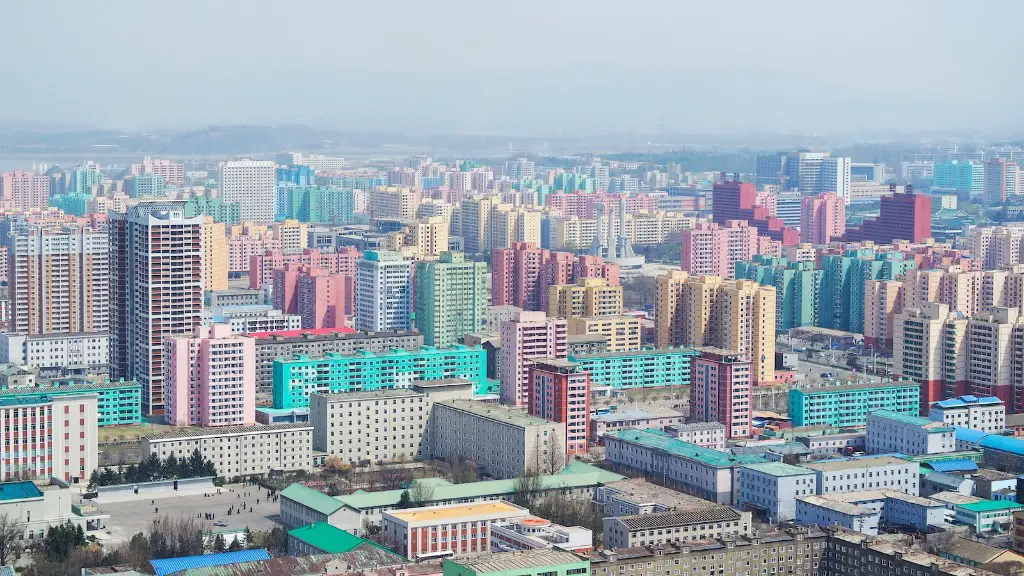North Korea is one of the most secretive countries in the world and its nuclear capabilities have been the source of tremendous fear for many years. Despite the sanctions imposed by the international community, the country is still able to survive and maintain its presence on the world stage. So, the question arises; who is funding North Korea?
Tracing the sources of North Korea’s funding has become a pressing matter for governments, economists, and financial organizations alike. International banks, governments, and private citizens of other countries may be providing financial support without the knowledge of their own governments. As all sources of funding are illegal, it is difficult to ascertain the amount and specifics of each transaction, making it even harder to track and stop the flow of funds.
Experts believe that the majority of North Korea’s income comes from weapons trades, drug trafficking, and overseas investment in businesses. Since weapon exports are against international laws, the transactions are most likely conducted through undisclosed companies and intermediaries. Drug trafficking is known to be the country’s second-largest source of income and it is likely connected to political regimes and terrorist groups. Finally, regular investments or money earned from job opportunities abroad – for example, North Korean doctors working in African countries like Angola – also contribute to the economy.
In recent years, China has been North Korea’s traditional ally, providing the country with a significant percentage of its imports. Traders that fly to North Korea to open businesses, like cafes and restaurants, often receive financial support from China. Although the exact amount of funds is unknown, it is estimated that without the support of China, North Korea’s economy would suffer a huge blow. It is clear that China holds a lot of influence over North Korea’s economic decisions and they are likely to back the secretive state financially.
North Korea also profits from a variety of illicit activities. The Democratic People’s Republic of Korea (DPRK) is one of the world’s most prolific producers of illicit weapons, including shoulder-fired anti-aircraft missiles, conventional and nuclear warheads, and missiles that deliver chemical, biological, and nuclear payloads. DPRK also exports counterfeit bills, drugs, and cyberattacks, enabling them to extract lucrative sums from other countries and organizations. Its core export partners are China and Russia, both of which have long been accused of facilitating and managing money laundering operations for North Korea. Furthermore, it is estimated that millions of dollars have been obtained from the sale of stolen bank cards.
Given the difficulty in tracking the funding of North Korea, it is clear that there are numerous outlets that the country is using to ensure its survival. It is hard to believe the lengths North Korea is willing to go to in order to fund their activities and stay a step ahead of the international community.
Political Influence
One of the ways that North Korea is able to maintain its financial resources is by using its political influence. North Korea is known as a “one-party state” meaning there is no debate or opposition when it comes to policy decisions. This allows North Korea to manipulate the media, funnel government funds to the Kim family, and tighten its grip on the population.
The Kim dynasty’s rule, established in 1948, has retained all political power since then and is currently led by Kim Jong-un. The political elites have amassed immense wealth through suspicious business dealings, confiscated property, and outright bribery. Moreover, the country earns money from impoverished citizens working in other countries through the laboring of overseas workers. This allows North Korea to exploit its own citizens and receive earnings from their toil.
Sanctions as a Source of Funding
The most interesting avenue of North Korea’s funding comes from the sanctions that have been put in place. One method is the illicit selling of products such as seafood, coal, and other exports that have been sanctioned. These products are sold to warehouses, which then launder the money earned by selling the goods back to North Korea.
North Korean officials are also believed to be taking funds through their embassies and consulates established in different countries, though these activities are illegal according to the United Nations. The latest example of these activities occurred in South Korea where an overseas worker was detained due to money laundering activities and a lack of proper background checks by embassy officials.
Furthermore, there are reports that North Korea is selling information, weapons and technology to other countries. A perfect example of this would be the sale of ballistic missile systems to Iran in 2018. Not only do these sales directly contribute to the country’s overall financial stability, but they also strengthen North Korea’s geopolitical influence by providing them with allies.
Utilizing Crypto Currency
Cryptocurrency is rapidly gaining traction on a global level, and North Korea is no exception, with reports of the country allegedly using the asset to skirt around international sanctions. It has been estimated that North Korea is able to earn as much as $2 million a year from Bitcoin and other crypto assets. Reports indicate that these funds are most likely obtained through hacking, with the majority of the funds likely being acquired from South Korea.
The DPRK has also attempted to launch its own cryptocurrency, known as the “JongCoin”. Despite the successful launch in 2017, the currency has failed to gain traction with investors, mostly due to heightened uncertainty over the country’s economy. Nonetheless, North Korea remains open to the possibilities of new technologies and is likely to continue attempting to exploit digital currencies in the future.
Humanitarian Aid
Humanitarian assistance is another source of funding for North Korea, especially in terms of food aid. Currently, the United Nations and other international organizations, such as the World Food Programme, are providing food aid to those in need. It is believed that a large percentage of these funds are being diverted to groups affiliated with the DPRK, proving that their aid is actively helping North Korea in maintaining its presence.
The US has also provided millions in aid to the country since 1995. This assistance has been criticized as it is believed that although some of the aid reaches those in need, a significant portion is lost due to mismanagement and fraud. Moreover, the US aid has allowed North Korea to divert resources from the poverty-stricken population to military production.
The Bottom Line
To sum up, North Korea is utilizing a variety of illicit methods to fund its operations. From weapons and drug trades to technological exploitation and political influence, Pyongyang’s sources of funding make it difficult to keep up with the country’s activities. Furthermore, with the help of sympathetic countries, such as China and Russia, and third-party assistance, the North Korean government can continue to survive and maintain its presence on the world stage.
